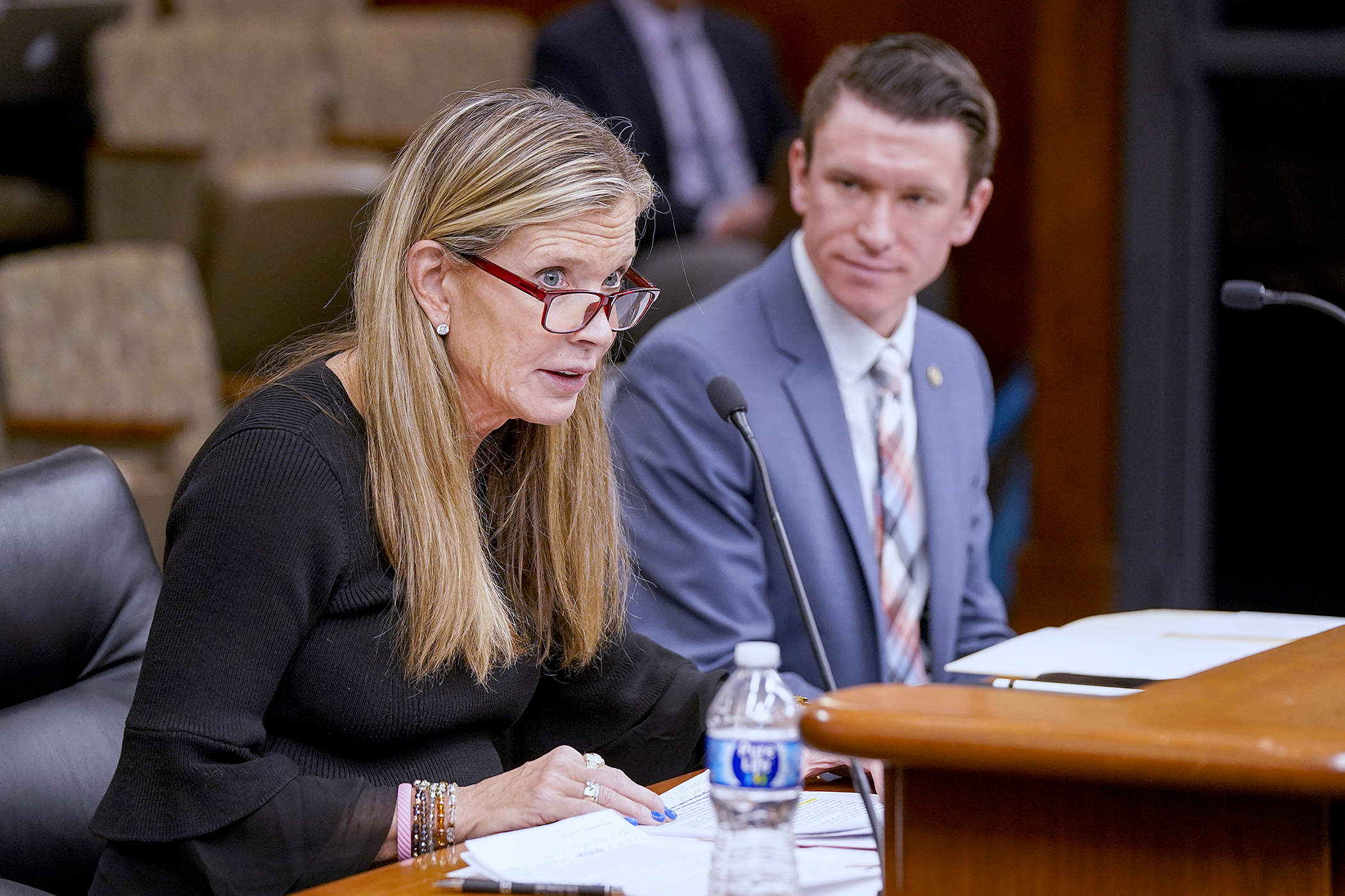With civic competition fierce, local officials seek funds to secure more world-class sporting events
Top amateur athletes seeking their sports highest honors are expected to provide a financial boon to the state this summer and in about 21 months.
Wendy Blackshaw, president and CEO of Minnesota Sports and Events, predicts estimated economic impact to the state from the 2024 U.S. Olympic Team Gymnastics Trials this June and the 2026 World Junior Hockey Championship will top $100 million.
But as the maxim goes, you need to spend money to make money.
That was the overarching theme at Wednesday’s meeting of the House Economic Development Finance and Policy Committee, which held over a bill to appropriate $6 million in fiscal year 2025 to Minnesota Sports and Events for costs related to hosting the junior hockey championship in the State of Hockey.
HF3934 would also appropriate an additional, unspecified amount of fiscal year 2025 money — plus unspecified, ongoing funding starting in fiscal years 2026 and 2027 — to help the state attract future big-time sporting events to the state.
 Wendy Blackshaw, president and CEO of Minnesota Sports and Events, testifies before the House economic development panel March 6 in support of a bill to help fund costs related to hosting the 2026 World Junior Hockey Championship. (Photo by Michele Jokinen)
Wendy Blackshaw, president and CEO of Minnesota Sports and Events, testifies before the House economic development panel March 6 in support of a bill to help fund costs related to hosting the 2026 World Junior Hockey Championship. (Photo by Michele Jokinen)Both those efforts are excellent ways to spend state money because the return on such investments can be enormous, said Rep. Matt Norris (DFL-Blaine), the bill sponsor.
“This bill is about bringing the next round of exciting events to our state," he said. "Minnesota has the opportunity to use our existing event and hospitality infrastructure to host the next slate of world-class sporting events.”
“This means jobs,” Norris added. “This means tens of thousands of visitors.”
Blackshaw said competition among cities in the U.S. and worldwide to host major events has always been fierce, even more so since the pandemic. Other cities’ sports commissions have public funding sources that allow them to aggressively bid with guaranteed funding.
She noted that Minnesota has recently lost bids to Detroit, New Orleans, Tulsa, Indianapolis, Houston, Las Vegas, Seattle, Milwaukee, Cleveland, and Columbus.
Those economic arguments didn’t sit well with Rep. Jon Koznick (R-Lakeville), who said the state should not be spending this kind of money — especially commitments to ongoing funding starting in the 2026-27 biennium — considering the February budget forecast predicting upcoming budget deficits.
Related Articles
Search Session Daily
Advanced Search OptionsPriority Dailies
Ways and Means Committee OKs proposed $512 million supplemental budget on party-line vote
By Mike Cook Meeting more needs or fiscal irresponsibility is one way to sum up the differences among the two parties on a supplemental spending package a year after a $72 billion state budg...
Meeting more needs or fiscal irresponsibility is one way to sum up the differences among the two parties on a supplemental spending package a year after a $72 billion state budg...
Minnesota’s projected budget surplus balloons to $3.7 billion, but fiscal pressure still looms
By Rob Hubbard Just as Minnesota has experienced a warmer winter than usual, so has the state’s budget outlook warmed over the past few months.
On Thursday, Minnesota Management and Budget...
Just as Minnesota has experienced a warmer winter than usual, so has the state’s budget outlook warmed over the past few months.
On Thursday, Minnesota Management and Budget...